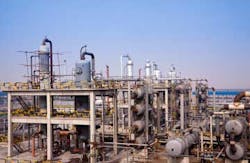Major changes are ahead for Europe's chlor-alkali and vinyls (CAV) market, which is facing regulatory changes and market consolidation over the next few years.
New regulations introduced by the European Union stipulate an end to mercury cell technology in chlorine production by December 2017. Chemical producers are required to either convert mercury cell-based chlorine plants to membrane technology, which is more environmentally friendly, or shut down the obsolete plants completely within that timeframe.
According to a new analysis by IHS Inc., the updated regulatory requirements, in addition to more mergers and acquisitions, are expected to lead to some closures of older plants and continued consolidation in the European CAV marketplace. The facilities that survive this transition will emerge stronger, with higher operating rates, increased market share and greater profitability, IHS believes.
Michael Smith, vice president at IHS Chemical, noted that the market is continuing to grow but some chlor-alkali and vinyls producers will experience difficulty in the short term. Taking a longer view, the regulatory changes and accelerated consolidation will have a positive impact on the market, he said.
The Chlor-Alkali BREF document issued by the European Union states that the use of mercury cell technology in chlorine production must be shut down by December 11, 2017. This is anticipated to affect around 20 percent of the total European capacity.
The technological shift will primarily impact Western Europe, which will see a reduction of an estimated 1.8 million metric tons (MMT) in chlorine capacity by 2018. Producers in Central Europe will also be affected, with the loss of an estimated 0.6 MMT in production capacity, IHS forecasts.
